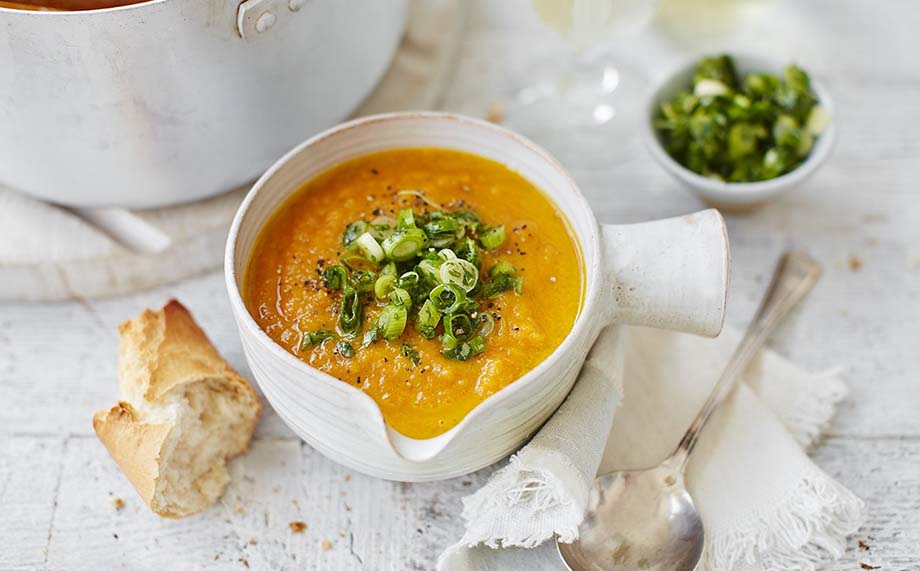Chronic inflammation might not make headlines the way a broken bone or a flu diagnosis does, but it quietly chips away at your health over time. Left unchecked, it’s linked to everything from joint pain and fatigue to heart disease, diabetes, and even certain cancers. While medications can certainly help, one of the most powerful ways to fight inflammation doesn’t require a prescription—it starts in your kitchen.
The good news? You don’t need exotic superfoods or expensive supplements to make a difference. Everyday foods—things you can find at your local grocery store—are packed with natural compounds that calm inflammation, protect your cells, and support long-term health. Adding these foods to your meals consistently can help reduce aches, boost energy, and improve overall well-being.
Let’s dive into 11 foods that dietitians and researchers agree are some of the best allies against inflammation.
Turmeric
Turmeric has earned superstar status for its powerful anti-inflammatory effects. Its active compound, curcumin, has been studied extensively for its ability to reduce inflammation at the cellular level. The trick? Pair turmeric with black pepper—piperine, a compound in pepper, significantly boosts curcumin absorption in the body.
You don’t need to overhaul your cooking to include it. Stir turmeric into soups, curries, rice, or even blend it into smoothies and golden milk. It’s a small change with big health payoffs.
Ginger
Warm, slightly spicy, and full of natural healing power, ginger is more than just a flavor booster. Its active compounds, especially gingerol, have anti-inflammatory and antioxidant effects. Research has linked ginger to reduced muscle soreness, improved joint comfort, and even better digestion.
Fresh ginger works beautifully in stir-fries, soups, or teas. Grated into smoothies, it adds a refreshing kick while quietly helping your body fight inflammation.
Berries
Blueberries, strawberries, raspberries, and blackberries all deliver a one-two punch of flavor and nutrition. Their vibrant colors come from anthocyanins, antioxidants that combat oxidative stress and inflammation. Regular berry consumption has been linked to improved heart health and sharper brain function.
Sprinkle berries on oatmeal, mix them into yogurt, or enjoy them as a sweet snack. They’re proof that fighting inflammation can taste delicious.
Leafy Greens
Spinach, kale, Swiss chard, and collard greens are loaded with **vitamins A, C, and K**, plus minerals like magnesium—all of which play a role in reducing inflammation. The fiber in leafy greens also supports gut health, which is closely tied to inflammation control.
These greens are incredibly versatile: sauté them with garlic, toss them into soups, or blend them into smoothies. A daily dose of greens helps your body stay balanced and resilient.
Fatty Fish
Salmon, mackerel, sardines, and tuna are some of the best sources of omega-3 fatty acids, nutrients that actively lower inflammation in the body. Omega-3s can help reduce joint stiffness, support heart health, and even calm overactive immune responses.
Aim for two servings of fatty fish per week. Grilled salmon, sardine toast, or even a tuna salad can go a long way toward keeping inflammation under control.
Olive Oil
A cornerstone of the Mediterranean diet, extra virgin olive oil contains a compound called oleocanthal, which has anti-inflammatory effects similar to certain over-the-counter medications. It’s also packed with healthy fats that support heart health.
Use olive oil as your primary cooking oil or drizzle it over salads and roasted vegetables. Even a small daily dose can make a measurable impact.
Green Tea
Green tea is one of the most studied beverages for its health benefits. Its star compound, EGCG (epigallocatechin gallate), is a powerful anti-inflammatory and antioxidant. Drinking green tea regularly has been associated with a lower risk of chronic illnesses like heart disease and type 2 diabetes.
Enjoy it hot or iced, plain or with a squeeze of lemon. Swapping an afternoon coffee for green tea gives your body a gentler energy boost with added health benefits.
Nuts
Walnuts, almonds, and pistachios are nutrient-dense snacks that deliver healthy fats, fiber, and antioxidants. Walnuts stand out for their plant-based omega-3s, while almonds are rich in vitamin E, another inflammation fighter.
A handful of nuts a day is enough to reap benefits. Add them to oatmeal, salads, or yogurt bowls—or simply keep a small stash in your bag for a smart snack.
Tomatoes
Bright and juicy, tomatoes are packed with lycopene, an antioxidant especially effective at reducing inflammation. Cooking tomatoes actually increases lycopene availability, which means tomato sauces, soups, and stews are just as beneficial (if not more) than raw tomatoes.
For best results, combine tomatoes with a bit of olive oil—the healthy fats help your body absorb lycopene more effectively.
Garlic
Garlic is more than just a flavor powerhouse. Its sulfur compounds, particularly allicin, have been shown to reduce pro-inflammatory signals in the body and boost immune defense.
Crush or chop garlic and let it sit for a few minutes before cooking—this helps release allicin. Add it to dressings, marinades, or roasted vegetables for both taste and health.
Dark Chocolate
Here’s some sweet news: in moderation, dark chocolate (70% cocoa or higher) is anti-inflammatory thanks to its flavanols. These plant compounds help improve blood flow, lower blood pressure, and reduce inflammation markers.
Keep portions small—just a square or two is enough. Pair it with nuts or berries for a doubly powerful anti-inflammatory snack.
Bringing It All Together
Calming inflammation isn’t about following a restrictive diet or giving up everything you love. It’s about making small, consistent choices that fuel your body with the right ingredients. Adding turmeric to rice, swapping butter for olive oil, or enjoying a cup of green tea instead of soda might seem simple—but those choices add up.
By keeping these 11 foods in regular rotation, you’re not just reducing inflammation; you’re laying the foundation for better energy, clearer thinking, and long-term health.
So the next time you’re filling your cart at the grocery store, remember: your best defense against chronic inflammation might just be what you put on your plate.





Leave a Reply